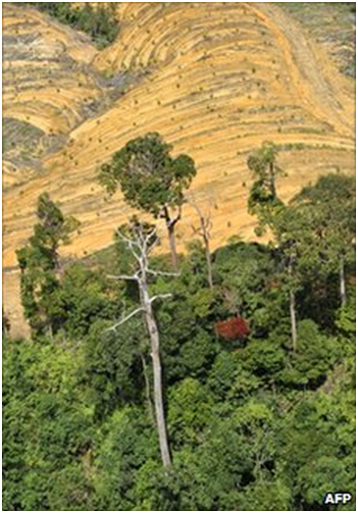Can Kofi Annan Bring Africa a Green Revolution?
Five years ago Kofi Annan launched his ambitious ‘Alliance for a Green Revolution in Africa’ project to alleviate or end endemic hunger on the continent. It appeared in a context of erratic rainfall, severe droughts, rising population and declining farm sizes, which resulted in falling soil productivity, land degradation and the emergence of an increasing number of low-income food deficient countries. But most importantly, the project comes in at a time when frustration and anger over failed state and public service projects among national and rural populations is at an all time high.
In Sierra Leone for instance, where AGRA is still a far cry and food insecurity is among the highest on the continent, and the unfulfilled promise of the immediate post war president Dr. Ahmad Tejan Kabbah to end hunger before his ten-year mandate ended still lingers in the minds of the people, Mr Annann’s project seems unlikely to be taken seriously.
Mr. Annan’s institution is devising several ambitious programs to boost agriculture and food self sufficiency on the continent but the speed at which this will happen is yet to be seen. What will be needed to make Annan’s project a success are good seeds and healthy soils, access to markets, information, financing, storage, transport as well as policies that provide them with comprehensive support, not just good intentions. The project offers exciting catch phrases such as ‘AGRA works to fill Africa’s breadbaskets’, and ‘AGRA works to bring comprehensive change’. “All these sound good but are reminiscent of what we have heard from the United Nations such as ‘Education for All by 2000’ ‘Housing for All by 2000’ and how better off are we today?” asks Patrick Akoto, a Ghanaian residing in Dakar.
Analysts recommend that a AGRA begins its campaign by focusing on specific and local problems in a handful of countries. In Liberia, Sierra Leone, Niger, Guinea Bissau, Somalia, Guinea and even in Senegal millions of people are highly vulnerable to hunger as they remain affected by localized crop failure, low or nonexistent subsidies for agricultural production and hence are in desperate need of food assistance. These can be some of the countries that AGRA need to urgently respond to their food needs. Skeptics will be able to judge the campaign by the success or failure of these projects.
These are also some of the countries where women, who are the majority smallholder farmers and main target of AGRA, are among the most illiterate and reside in rural areas where hunger and poverty is biting hardest. The Alliance has organised several international conferences since 2007 to plan the best means of responding to the food crisis that continues to haunt millions on the continent and virtually in every country particularly south of the Sahara.
Other efforts being made by the Alliance in a bid to achieve its ambition is the setting up of the Alliance for Green Revolution Forum which brings together private and public actors to focus primarily on agriculture development. In a statement last year to launch the Forum, Kofi Annan, said “We will be looking to governments for leadership to create an environment that will enable agriculture to prosper and grow… We will be looking to the private sector to drive and sustain that growth… achieve a food secure and build a prosperous Africa .”
The AGRF seeks to unlock Africa’s agricultural potential and facilitate sustainable economic growth, thanks to new investment and public-private partnerships. While serving as Secretary General of the United Nations, Mr. Annan called for a uniquely green revolution in Africa to meet the Millennium Development Goal of halving hunger by 2015. He underscored the need to substantially increase food production in Africa and argued that this required a comprehensive and integrated approach to improve the productivity, profitability and sustainability of smallholder farmers. But analysts are increasingly cautious about the chances of Annan’s dream becoming a reality if it works along the path of one of its partners, the New Economic Partnership for African Development (NEPAD). Since its launch in 2000 NEPAD has yet to begin implementing many of its ambitious projects including the multi-billion dollar pan African railway network spanning from Dakar to Djibouti to Pointe Noire in the Republic of Congo.
Africa has seen many a grand scheme for achieving food security, and despite the status and respect that Kofi Annan undoubtedly commands, it will take more than ambition, good will and slogans to make real progress against this problem. AGRA will ultimately be judged by its ability to offer real solutions, not just rhetoric.
By Tamba Jean-Mathew III, courtesy of Think Africa Press
About the Author
 Tamba Jean-Matthew III is a Sierra Leonean journalist trained in Liberia and France. He is a former assistant editor at the Pan-African News Agency and served as a public relations officer in the Sierra Leone army. He read peace studies at the West Africa Research Center in Senegal where he presently resides.
Tamba Jean-Matthew III is a Sierra Leonean journalist trained in Liberia and France. He is a former assistant editor at the Pan-African News Agency and served as a public relations officer in the Sierra Leone army. He read peace studies at the West Africa Research Center in Senegal where he presently resides.
Stay with Sierra Express Media, for your trusted place in news!
© 2011, https:. All rights reserved.






